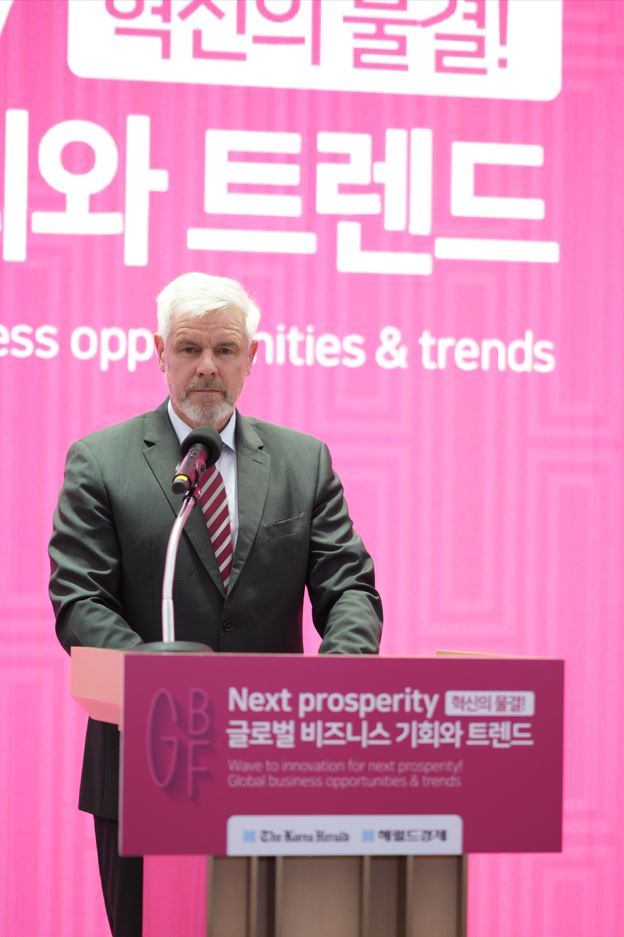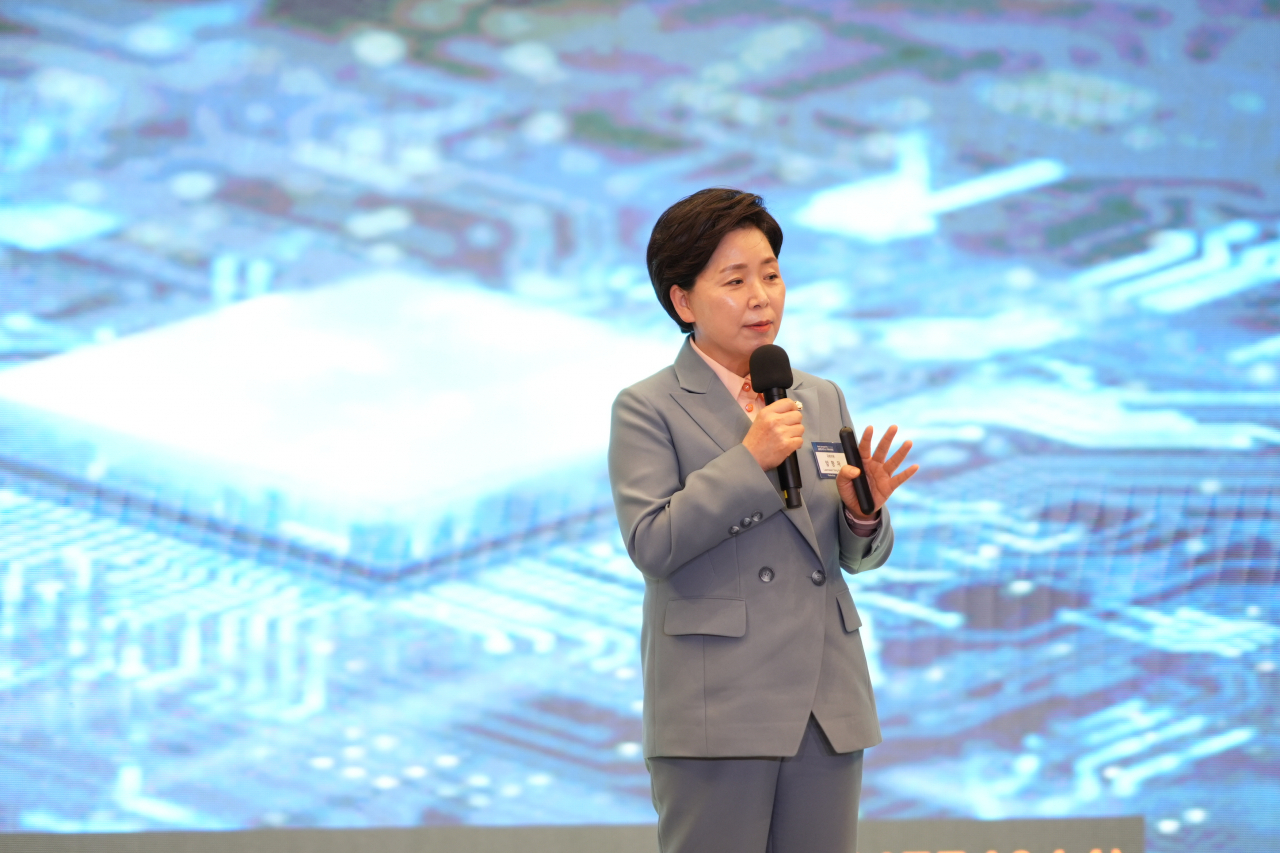 |
German Ambassador Michael Reiffenstuel gives welcoming remarks at the 11th session of the Global Business Forum at the Ambassador Seoul - A Pullman Hotel on Wednesday. (Damdastudio) |
Germany's main envoy to South Korea discussed ways to forge stronger ties in the era of the "fourth industrial revolution" at the Global Business Forum hosted by The Korea Herald on Wednesday at the Ambassador Seoul - A Pullman Hotel.
During the 11th session of the forum, German Ambassador Michael Reiffenstuel said that the two sides had intensified their collaboration in core areas of tech, while digitalization has revolutionized both economies.
“As a like-minded country and leader in digital technology, Korea is a natural partner,” the ambassador said, mentioning hope for the further successful cooperation between Korea and Germany.
Revisiting the trade, friendship and shipping treaty signed between the then German Empire and Joseon Kingdom on Nov. 26, 1883, Korea and Germany have developed a close partnership and friendship built on trust in the 140 years since.
Against the backdrop, Germany aims to define global norms and standards on the government level while establishing regular exchanges in a “digital dialogue” and in an industry policy working group with Korea, he said.
Though technologies like artificial intelligence bring about the tremendous potential of digital transformation, there's a need for setting regulations and standards -- not only in the technological sphere but also in terms of ethics, freedom, law enforcement and data protection, he said.
“If we want to protect our values and our democracy, we also need to focus on these aspects,” Reiffenstuel said.
Germany recently pledged to close its last coal-fired power station by 2038 and aims for 80 percent of electricity to come from renewables by the end of 2030. Likewise, the Korean government plans to increase the proportion of energy generated from renewable sources.
Regarding the country’s efforts, the ambassador said, “It is to fulfill our task as a leading nation and to become less dependent on energy from outside (Germany).” He also advised the Korean government to commit to renewable energy, or otherwise, local companies’ exports to climate-sensitive nations could end up facing difficulties.
 |
Rep. Yang Hyang-ja, head of the ruling People Power Party's special committee on semiconductors, speaks during the 11th session of the Global Business Forum at the Ambassador Seoul - A Pullman Hotel in Jung-gu, Seoul. on Wednesday. (Damdastudio) |
Rep. Yang Hyang-ja, head of the ruling People Power Party's special committee on semiconductors, said Korea should safeguard its chip supremacy in overseas markets, arguing that technology is a matter of sovereignty.
“It is a history of overcoming contradictions that Korea has maintained the world's No. 1 player in the memory chip industry for 30 years. ... In the meantime, the information revolution has been reshaped every 10 years in line with technology development in chips. Korea needs the support of the state to prepare for the next revolution in advance,” the Samsung Electronics executive-turned-lawmaker said.
The GBF is an association of experts in a wide range of fields, including business leaders, scholars, diplomats and celebrities, aiming at providing comprehensive views on industrial changes.
The third edition of the GBF, which kicked off on Feb. 15, will run through May 17, with a total of 13 sessions.







![[Today’s K-pop] Blackpink’s Jennie, Lisa invited to Coachella as solo acts](http://res.heraldm.com/phpwas/restmb_idxmake.php?idx=644&simg=/content/image/2024/11/21/20241121050099_0.jpg)